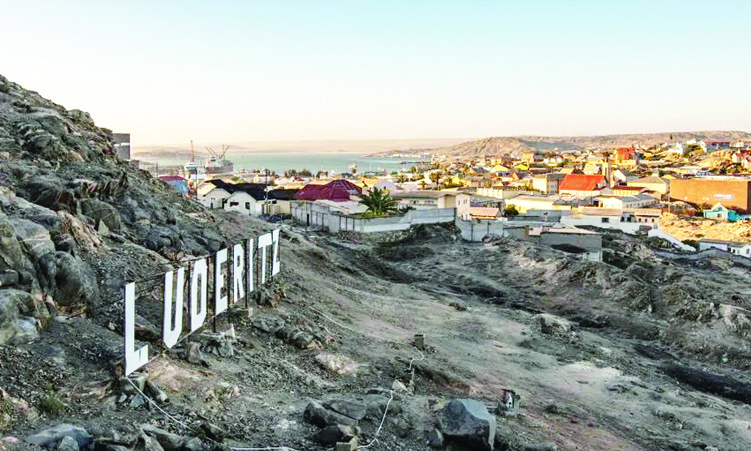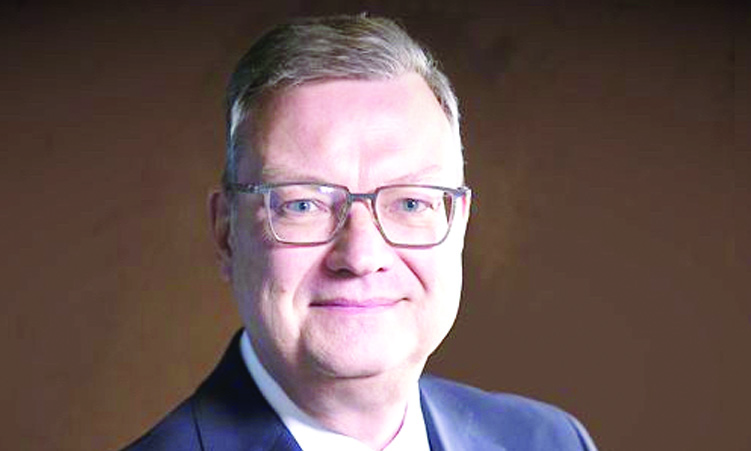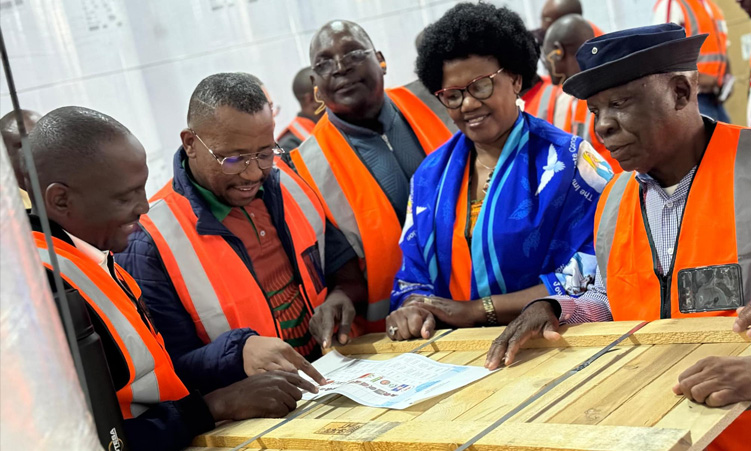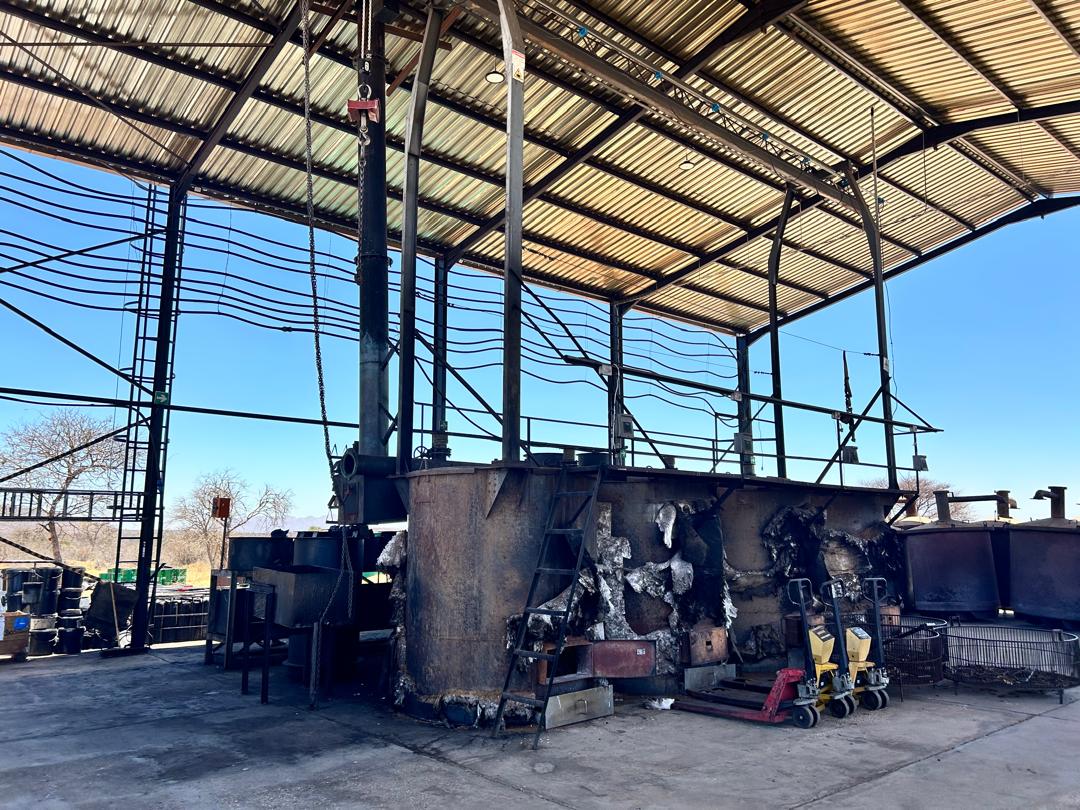The German government has reportedly rejected a proposal by Lüderitz Town Council leaders who wanted to use part of a N$100 million grant on their chosen projects.
In June, Germany promised Namibia N$1,1 billion for several projects, including N$100 million for Lüderitz and its surrounding areas.
Now there is speculation that the Lüderitz Town Council wanted the N$100 million to finance projects that were already identified by the council. However, the German government refused that suggestion.
German government officials are set to travel to Lüderitz next month.
The appraisal mission will include German ambassador to Namibia Thorsten Hutter, who denied the dispute when questioned by The Namibian this month.
“The appraisal mission, scheduled for early November, will discuss and determine with all stakeholders the priorities, objectives and activities of the project. A common project approach will be agreed,” he said.
Hutter said the project is aimed to promote the sustainable urban development of Lüderitz and Aus and not an exclusive grant to the Lüderitz Town Council.
“We intend to start the project in the first or second quarter of 2024 with an implementation period of three years. Any disbursement will be made according to project progress,” he said.
The selection of Lüderitz as a recipient of this funding is no accident. A private German company, Enertrag, is at the forefront of a consortium embarking on a N$100 billion green hydrogen project in the vicinity of Lüderitz.
One bottleneck in Lüderitz’s infrastructure is its sole main road leading into the town. Overburdened and underprepared, this road currently accommodates the transit of more than 70 trucks each week, primarily ferrying zinc and manganese cargo to the Lüderitz harbour.
The road could face another challenge – the weight of additional equipment for both the green hydrogen project and the proposed N$10 billion new port.
The Lüderitz Sewage Treatment Plant, located on the town’s outskirts, is facing dire constraints having been designed to cater to 12 000 people recorded in the 2011 census.
The town, dependent on the fishing sector, only has two service stations which open at 06h00 and close at 21h00.
“The residents of informal settlements, predominantly children and young adults, are living in challenging conditions, facing significant limitations to their economic, human, political and socio-cultural development opportunities, insecure tenure and inadequate access to basic infrastructure and municipal services,” said Hutter.
Therefore, Hutter says the German government committed €5 million (N$100 million) to support shaping urban development that is efficient, sustainable and climate neutral.
“Strengthening the respective council capacities and stakeholder coordination is key,” he said.
The Lüderitz Town Council’s budget for the financial period 2023/4 is N$179 million but not everyone has confidence in the council.
“N$100 million? How will they handle N$100 million if they can’t even balance their books?” Erich Looser, a marine electronic engineer at Lüderitz since 1989, questioned.
Lüderitz mayor Benjamin McKay said he has no idea when the German government will visit Lüderitz.
“The money is for the town boundary extension. The money will be controlled by Deutsche Gesellschaft für Internationale Zusammenarbeit (GIZ). The agreement is not concluded yet, but the German government has already identified how the money will be used,” he said.
He also denied any dispute.
“We just came from Germany a month ago. We went there for networking and partnerships. There was no dispute. We have a healthy relationship,” he said.
McKay said the town council needs more help because of the influx of people.

Hutter said green hydrogen is a private sector project.
He said the German government does not collaborate with Lüderitz in the perspective of green hydrogen and/or the port development.
“The only area where Lüderitz will be supported is providing technical advice and capacity building for urban development in Lüderitz and the region. The aim is to support the city and the region regarding the enormous challenges of a rapidly growing city,” he said.
However, Hutter says because of the German history in Namibia, it is of utmost importance for the German government, that the cooperation between Hyphen Hydrogen Energy and the Namibian government is a true and fair partnership.
There are specific conditions or expectations from the German government regarding the use of the N$100 million.
Hutter said gender aspects, human rights, environmental and climate risks, as well as potentials are screened and if need be, further investigated in the design process of every technical cooperation project.
“The results will guide the project design. We also recognise the importance of aligning the need of short-term infrastructure development for the green hydrogen project with the potentials and requirements of an integrated urban development that is sustainable in the long term,” he said.
Stay informed with The Namibian – your source for credible journalism. Get in-depth reporting and opinions for
only N$85 a month. Invest in journalism, invest in democracy –
Subscribe Now!






